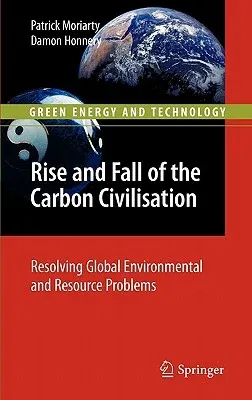A vast amount has been written on climate change and what should be our
response. Rise and Fall of the Carbon Civilisation suggests that most of
this literature takes a far too optimistic position regarding the
potential for conventional mitigation solutions to achieve the deep cuts
in greenhouse gases necessary in the limited time frame we have
available. In addition, global environmental problems, as exemplified by
climate change, and global resource problems - such as fossil fuel
depletion or fresh water scarcity - have largely been seen as separate
issues. Further, proposals for solution of these problems often focus at
the national level, when the problems are global. The authors argue that
the various challenges the planet faces are both serious and
interconnected. Rise and Fall of the Carbon Civilisation takes a global
perspective in its treatment of various solutions: - renewable energy; -
nuclear energy; - energy efficiency; - carbon sequestration; and -
geo-engineering. It also addresses the possibility that realistic
solutions cannot be achieved until the fundamentally ethical question of
global equity - both across nations today and also inter-generational -
is fully addressed. Such an approach will also involve reorienting the
global economy away from an emphasis on growth and toward the direct
satisfaction of basic human needs for all the Earth's people. Rise and
Fall of the Carbon Civilisation is aimed at the many members of the
public with an awareness of climate change, but who wish to find out
more about how we need to respond to the challenge. It will also be of
interest to technical professionals, as well as postgraduate students
and researchers, from the environmental and engineering science sectors.

